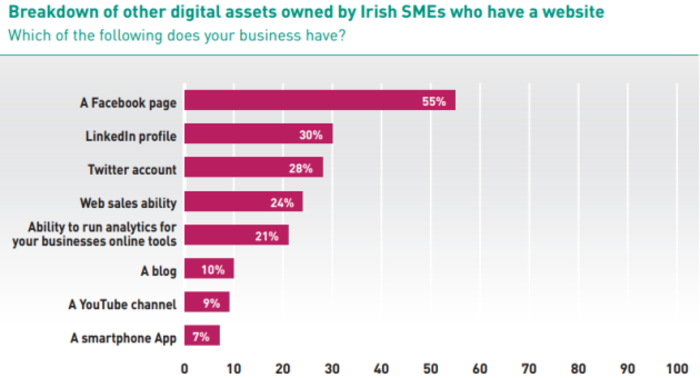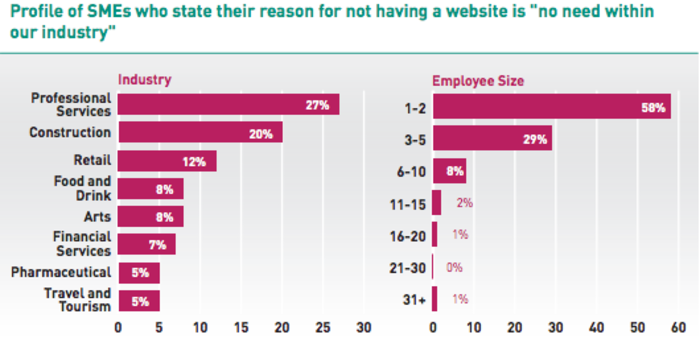Bad internet coverage is stopping many smaller firms from getting online
Having no web presence today is a bit like being out of the phone book last century.
MANY SMALL IRISH companies have no online presence, with a large share blaming bad internet access for their lack of a digital footprint.
But overall, SMEs have been tuning up their online operations with the proportion of businesses able to process sales over the web more than doubling in just seven months.
The findings come from the latest ‘digital health index’ from the IEDR, which manages the .ie domain.
Its latest research, conducted in April, showed than more than one in six small or medium-sized firms didn’t have a website or even a social media account – although that was significantly less than the one-quarter of businesses that were completely offline in September 2015.
In comparison, more than 70% that had a website and nearly one-quarter were equipped with a Facebook page, which was easily the most popular social media site ahead of LinkedIn, Twitter and YouTube.

The survey also showed that the share of all SMEs with the ability to sell via the web increased from only 8% in September last year to 19% two months ago.
The offliners
Meanwhile, of the share with no digital presence – the so-called ‘offliners’ – more than one-quarter said poor internet was stopping them getting online.
Ireland has historically had some of the worst broadband coverage in Europe, although the figures have been improving since 2014 with major fibre rollouts from private providers. Work on the long-delayed, government-backed National Broadband Plan is due to start next year.
However, 60% of the offline contingent believed there was no need for a website in their industry.

IEDR chief executive David Curtin said having no online presence was, in 20th century terms, “like being ex-directory from the telephone book”.
“For many SMEs, the will to build a website is not the issue; lack of expertise and infrastructural problems, however, are,” he said.
“In particular, lacklustre broadband in many parts of the country remains a profoundly important issue.”
Curtin added that delays in building a broadband network in under-serviced areas would only “widen the digital divide, hamper economic development in rural counties and push money out of the Irish economy”.
The vast majority of 500 companies involved in the survey were micro enterprises – those employing 10 or fewer people.






